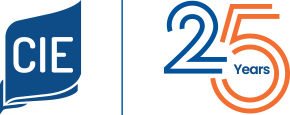Editorial: Entering the era of appreciating new forms and emerging meanings — by Bernie Mak, Managing Editor of The Punctum
Published online: June 24, 2025; Published: June 27, 2025
As the globe enters a new phase of geopolitics, previously established values and beliefs may no longer be useful for interpreting events, people, their behaviors, and their thoughts. Alongside the uncertainties, the landscape of education is also undergoing significant change due to the widespread impact of AI across various facets of life. Nevertheless, there is one constant remaining: our intrinsic desire to seek knowledge in order to become a better person – mentally, behaviorally, and spiritually – as illustrated in volume 3 of The Punctum.
The lecture “How to speak English with a Hong Kong accent” by Toni Lam describes the phonological features of Hong Kong English, an accent that is often undervalued in popular discourses. Linguistically, acquiring a new accent is achievable even beyond the so-called second critical period; however, effective learning depends on a comprehensive understanding of the sound patterns of the language. Successful learners are often capable of perform strategic style-shifting to attain relational goals, such as rapport management.
The article “Linguistic characteristics of dyslexic students in Hong Kong” by Raymond Lam presents factual evidence to indicate that dyslexic students, despite exhibiting a lower level of emotionality and logical reasoning, can produce high-quality writing when adequately trained in the use of emotional lexicons and subordinating structures. This proposition is encouraging as it offers new hope for the disadvantaged and introduces a new perspective to longstanding challenges.
The paper “The Last Dance (2024) and the moral significance of funeral ritual in the Xunzi” by Angel Ting begins with an acknowledgment of the Hong Kong drama film, discussing the cultural and social significance of funeral rituals from the perspective of Chinese philosophy. Although such rituals are usually carried out in the same way on the surface, they express and reflect deep human emotions and sentiments. The underlying meanings of respect, love, and longing can vary depending on the attitudes of the performer or the audience.

The essay “Treading the footsteps of my beloved grandparents in their paths of cultivating education in the New Territories of Hong Kong” by Miriam Lau recounts her journey back to a former public school located in a rural area of the community. Like many documentaries featuring a youngster reconnecting with the older generation, it is filled with nostalgia and renewed memories, filming a new episode of uncovering a piece of the historical puzzle of Hong Kong’s formal education system.
The poster “Gdańsk Impression” by Fiona Wong positions the reader to a tourist who is new to Gdańsk (Danzig), a seaport city on the Baltic coast of northern Poland. Rather than immersing yourselves in the military meaning of the seaport during ancient times or World War II, you wander through the church all alone, listen to the breeze around the park, and gazing at the birds flying across the sky. Surrounded by gentle and natural scenery, you feel like embracing political heat with a peaceful, cool heart.
The poem “The White Smoke (in Celebration of Our New Pope Leo XIV)” by Theresa Cunanan explores the complexities of grief and sorrow amidst the joy of welcoming a new pope into office. While many believe that God will guide them along the right path, there is no guarantee that this path is free of difficulties, especially when it is obstructed by ambition and malice disguised as law and justice. Religious disciples often ruminate over what faith means to them, but few consider what they represent within that faith.
The above achievements allow us to view traditional concepts or usual practices from fresh perspectives, transforming them into new forms through which new meanings can be conveyed, discussed, and examined. As educators, we are often caught in dilemmas. On the one hand, we are expected to adhere to established standards and protocols as role models; on the other hand, we are individuals who wish to explore and innovate within the familiar world. At a crossroads of this kind, we invite colleagues and visitors to engage with the published works as knowledge transfer, revitalizing our effort to embrace an uncertain world in a state of flux.
Editor’s note
All claims or opinions expressed in the publications of this volume are solely those of the authors and do not necessarily represent those of their affiliated divisions or programs. Their use, distribution, or reproduction on other forums is permitted, provided that the original author(s) and copyright owner(s) are credited, and that the original publication in this journal is appropriately cited, in accordance with standard academic practices.



